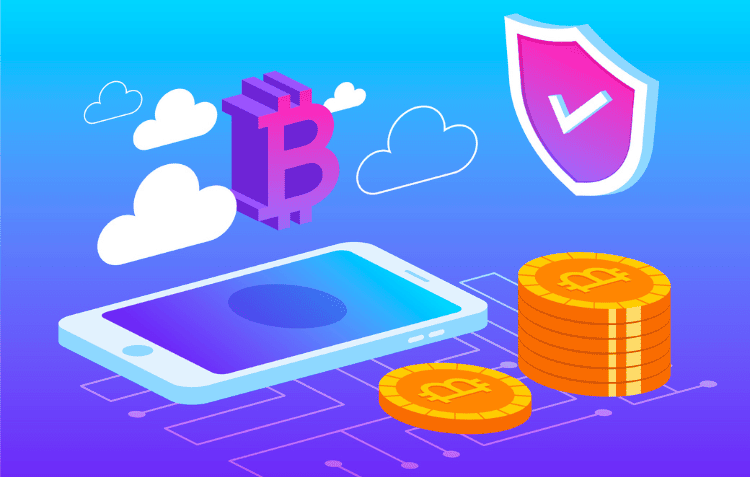Blockchain Security: Ensuring Safe Transactions in the Digital Age
Introduction
In the age of digital innovation, blockchain technology has emerged as a revolutionary way to secure data and facilitate transactions. Built on the principles of decentralization and transparency, blockchain is hailed as a game-changer in protecting sensitive information and ensuring trust in digital ecosystems. For a comprehensive guide to blockchain technology, you can explore its detailed structure, applications, and evolution. However, with this innovation comes the need to address critical aspects of blockchain security, ensuring that blockchain transactions are safe, reliable, and free from vulnerabilities.
How Blockchain Ensures Security
At the core of blockchain’s appeal is its ability to offer a secure environment for digital transactions. Unlike traditional systems, where data is stored in a centralized database, blockchain operates on a decentralized network. This means that control and verification are distributed across multiple nodes, each holding a copy of the blockchain. This structure offers several security advantages:
- Decentralization: Since blockchain data is spread across numerous nodes rather than centralized in a single location, the risk of a single point of failure is minimized. Hackers would need to compromise the majority of the network simultaneously—a task that is incredibly complex and resource-intensive.
- Cryptographic Security: Blockchain transactions are secured through advanced cryptographic algorithms. Every transaction is encrypted, ensuring that data remains secure from unauthorized access. Public and private keys are used to authenticate participants and confirm the legitimacy of transactions, making it nearly impossible for unauthorized parties to tamper with the data.
- Consensus Mechanisms: Blockchain networks use consensus algorithms like Proof of Work (PoW) and Proof of Stake (PoS) to verify and validate transactions. These mechanisms ensure that only legitimate transactions are added to the blockchain, preventing fraudulent activities and ensuring the integrity of the network. Learn how 5G is revolutionizing blockchain transactions by providing faster and more secure connectivity.
The Security Benefits of Blockchain Transactions
Blockchain technology has been widely adopted for its security benefits, particularly in industries that rely on accurate and transparent transactions. Here are some of the key security features that blockchain offers:
- Transparency and Traceability: Every transaction on a blockchain is recorded on a public ledger, making it traceable and transparent. This is particularly beneficial in industries like supply chain management, where transparency is essential for verifying the authenticity of goods and transactions.
- Immutability: Once data is recorded on the blockchain, it is immutable—meaning it cannot be altered or deleted. This immutability ensures the security of the ledger and makes it an ideal solution for storing sensitive data like financial transactions or medical records.
- Protection Against Double-Spending: One of the primary challenges in digital transactions is the risk of double-spending, where a digital asset is spent more than once. Blockchain technology prevents this by using consensus algorithms to verify transactions and ensure that the same asset cannot be duplicated or used fraudulently.
Challenges and Vulnerabilities in Blockchain Security
Despite its many security benefits, blockchain technology is not without its challenges and vulnerabilities. While blockchain offers robust protection against many forms of cyberattacks, certain weaknesses remain:
- 51% Attacks: In smaller blockchain networks, there is a risk of what is known as a 51% attack, where a single entity gains control of more than 50% of the network’s computational power. This could allow the attacker to manipulate transactions, reverse them, or double-spend assets.
- Smart Contract Vulnerabilities: Smart contracts are self-executing contracts with the terms of the agreement directly written into code. While they provide efficiency and automation, they can also be exploited if they contain coding errors or vulnerabilities. Once a smart contract is deployed, it cannot be changed, making any errors permanent and potentially harmful.
- Human Error: As with any technology, human error is a significant risk. Mistakes in coding, mismanagement of private keys, or failure to implement proper security measures can all compromise the security of blockchain transactions. Ensuring proper training and adherence to best practices is essential to mitigating these risks.
Real-World Applications of Blockchain Security
Blockchain security is not just theoretical; it is actively being applied in industries around the world to protect sensitive information and ensure secure transactions. Here are some real-world examples:
- Finance: The financial sector has been one of the earliest adopters of blockchain security. Major institutions are using blockchain to streamline cross-border payments, enhance fraud detection, and provide more secure platforms for trading digital assets like cryptocurrencies.
- Healthcare: Blockchain is transforming healthcare by ensuring that patient data remains secure, accurate, and accessible only to authorized parties. By storing medical records on a blockchain, healthcare providers can improve data sharing between hospitals, reduce the risk of data breaches, and ensure that patient privacy is protected.
- Supply Chain Management: In supply chain management, blockchain is used to enhance transparency and security. By tracking the movement of goods on a blockchain, companies can verify the authenticity of products, reduce the risk of counterfeiting, and ensure that ethical sourcing practices are followed.
The Future of Blockchain Security
As blockchain technology continues to evolve, so too will the strategies for ensuring its security. Some of the emerging trends in blockchain security include:
- Quantum-Resistant Cryptography: With the development of quantum computing, there is a growing concern that existing cryptographic algorithms could be broken. In response, researchers are working on quantum-resistant cryptography, which aims to protect blockchain transactions from future quantum attacks.
- Enhanced Smart Contract Auditing: As smart contracts become more prevalent, the demand for rigorous auditing processes will grow. Auditing tools that automatically detect vulnerabilities in smart contracts before deployment will become essential for preventing security breaches.
- AI and Machine Learning in Blockchain Security: AI and machine learning are expected to play a larger role in blockchain security by identifying patterns and predicting potential threats. These technologies can enhance the ability of blockchain networks to respond to and mitigate cyberattacks.
Conclusion
Blockchain security is critical to the continued growth and adoption of blockchain technology. By offering decentralized, transparent, and immutable records, blockchain provides a secure environment for digital transactions. However, as with any technology, some risks and challenges must be addressed to ensure its long-term success. With advancements in cryptography, smart contract auditing, and AI, the future of blockchain security looks promising, setting the stage for even more secure and efficient blockchain transactions in the digital age.
FAQs
What makes blockchain transactions secure?
Blockchain transactions are secure due to decentralization, cryptographic encryption, and consensus mechanisms, which prevent unauthorized alterations and ensure the integrity of the ledger.
How does blockchain prevent fraud in digital transactions?
Blockchain prevents fraud by using cryptographic algorithms to secure transaction data and ensuring that all participants in the network agree on the validity of each transaction through consensus mechanisms.
What are the risks associated with blockchain security?
Some of the risks include 51% attacks, vulnerabilities in smart contracts, and human error in managing private keys or implementing security protocols.
Can blockchain technology be hacked?
While blockchain technology is highly secure, it is not immune to attacks. Smaller networks are more vulnerable to 51% attacks, and poorly coded smart contracts can be exploited.
What industries benefit the most from blockchain security?
Industries such as finance, healthcare, and supply chain management benefit significantly from blockchain security due to the need for secure, transparent, and immutable records.







